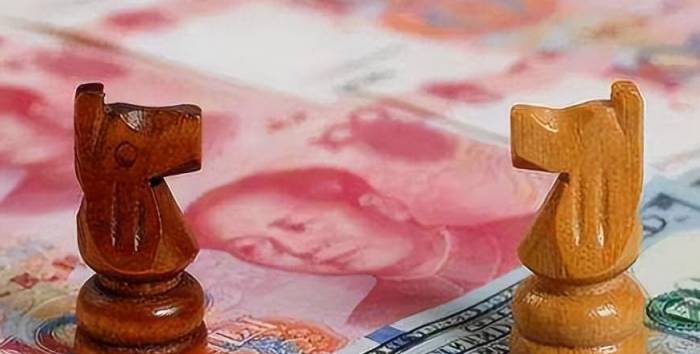China-US Inflation: RMB Appreciation Strategy Inevitable
Here is the English translation of the provided text: Inflation synchronization between China and the US is inevitable, and China is bound to adopt strategies of RMB appreciation to cope with it.
As global inflation, including in China, becomes a certainty, the Federal Reserve's interest rate cut in September is also inevitable.
US inflation is set to bottom out and rebound, with a second wave of inflation already on the horizon.
China must also resolve the enormous debts accumulated by local governments and developers through monetary easing and artificially inflating asset prices.
Especially after the Fed's monetary easing, global asset prices naturally rise, leading to imported inflation in China, which is already a foregone conclusion.
Recently, Harris explicitly stated in her campaign speech that if elected, she might implement food price controls in the future and severely punish businesses for price gouging.
This is obviously a serious deviation from the facts.
Back in the day, Nixon also tried to curb inflation through forced price controls, but during the control period, there was a severe shortage of goods, and social welfare was limited.
Advertisement
However, after the price controls were lifted, US prices rebounded sharply.
After the Fed's interest rate cut, inflation bottoming out and rebounding has become inevitable.
However, the US political arena currently has no effective measures that can be implemented.
But from Harris's extreme and desperate policy, it can be seen that the US political arena has clearly realized the severity of "second inflation" and also proves the failure of conventional economic measures.
In fact, since the collapse of the Bretton Woods system, the world has always been in a contradictory situation in dealing with inflation and maintaining economic development.
It controls inflation by tightening money supply, but also maintains economic development through active fiscal policies.
Ultimately, money tightening controls the total amount of money flowing into the market, while active fiscal policies continue to inject incremental money into the market, and in the end, it can only accept the fact of inflation and ensure that it is generally controllable.
In theory, it is entirely possible to effectively cushion this round of inflation through global trade again.
However, the reality that the US attitude towards China has completely populist determines that this path is fundamentally unfeasible.
The key to the deterioration of global inflation is not the economy, but human disturbance.
In fact, the global economy as a whole currently has structural imbalances, which also allows cheap labor, resources, and products from other regions to suppress inflation in some areas.
But once politics becomes populist, economic policies inevitably have to give way to political struggles, ultimately leading to the deterioration of inflation.
In fact, the ultimate factor that has allowed global powers to effectively control inflation in recent decades is not monetary and fiscal policies, but global trade.
For example, in the 1980s, the key to Fed Chairman Paul Volcker controlling inflation through extreme interest rate hikes was the integration of cheap labor, land, and resources from Southeast Asia and East Asia into the US-led industrial chain, which overall reduced US inflation.
In fact, the world can still reduce inflation through this method, but the US attitude towards China has completely populist, and it follows the ABC policy
